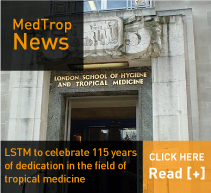
If you can not see this message correctly, click here.
Read Our News in Portuguese



There is no scientific evidence that culling is an effective method when combating leishmaniasis
"The veterinarians are now allowed to treat infected dogs", signs Dr. Wagner Leão do Carmo, lawyer in charge of the claim by the Wellbeing Protection Society – Animal Shelter (Abrigo dos Bichos), from Campo Grande/MS, against culling animals infected by leishmaniasis. He highlights that annually around 6 million dogs are sacrificed in Brazil. The formal authorization allowing treatment for leishmaniasis infected dogs was granted by the president of the Supreme Justice Court, Minister Joaquim Barbosa. The Federal Supreme Court (FSC) rules against the Interministerial Ordinance MS/MAPA nº1426/2008, that among...
Read [+]


The disease can be erradicated with vaccination. The campaign we need aims to vaccinate all the population, because today, the vaccination is only recommended for those above 50 years old
Most patients diagnosed nowadays have the mutante of the hepatitis B virus (VHB), as assures Dr. Marcelo Simao Ferreira, infectology professor from the Uberlandia Federal University (UFU)...

Bureaucratic impediments are huge in the daily reality and this leads to time loss and, sometimes, impossibility of accomplishing
tasks
Scientific competitiveness is extremely intense among the best universities of the world. Sao Paulo University (USP), despite enhancing in several university production components...


The use of transgenic mosquitoes can be a useful tool, associated to other control approaches, as well as population awareness and mobility measures, besides enhancing the urban areas conditions
A problem striking an important part of the world's population, regardless of income status, dengue fever has become a great international public health concern, since the transmitting mosquitoes are frequently found in urban and peri-urban sites. In a recent article published in the media it was reported that the Aedes albopictus, which has spread towards North America and Europe, is highly adaptable, therefore, can survive in the coldest temperate regions of Europe. Could we affirm that combatting dengue fever is also non-tropical...
Read [+]


There are few works conducted in Brazil being published in excellence journals such as Science or Nature. It is important to keep in mind that until today no Nobel Prize has been conceded to a Brazilian scientist
"The article published in the Estadao website by Herton Escobar: 'Brazilian science must be more daring', based in an interview with Science Magazine's head editor, Marcia McNutt, is important for reflection and pointing the way for Brazilian public policies for Science, Technology...
Read [+]

New drug may be the definitive cure for hepatitis C
Brazil is the first country to offer full antiretroviral access for AIDS cure
New discovery could dramatically reduce leishmaniasis treatment doses and side effects
Hepatitis C Treatment: A Big Change Is Coming
Could concentrated HIV epidemics make AIDS unbeatable?


Below is a selection of for this month of december of publications related to Tropical Medicine from important international journals.
Microfluidic CD4+ and CD8+ T Lymphocyte Counters for Point-of-Care HIV Diagnostics Using Whole Blood
Piecing Together the Puzzle of Severe Malaria
HIV: Antibodies advance the search for a cure
Vaccination with Leishmania Hemoglobin Receptor–Encoding DNA Protects Against Visceral Leishmaniasis



16 a 19 de junho de 2014
Congresso sobre avanços internacionais na descoberta de medicamentos e novas terapias
Boston/USA
16 a 18 de julho de 2014
Congresso Internacional sobre Água, Resíduos e Gestão de Energia
Oporto/Portugal
2 a 6 de Nov. de 2014
Sociedade Americana de Medicina Tropical e Higiene (ASTMH) 63ª Reunião Anual - 2014
New Orleans, USA
Brazilian Society of Tropical Medicine - Center for Tropical Medicine - UnB
Hours: Monday to Friday from 8am to 12pm and from 14pm to 18pm
sbmt@sbmt.org.br | PO Box 4356 | Room 43C - 70904-970 | Brasilia - DF | Phone/Fax: (61) 3307-1154